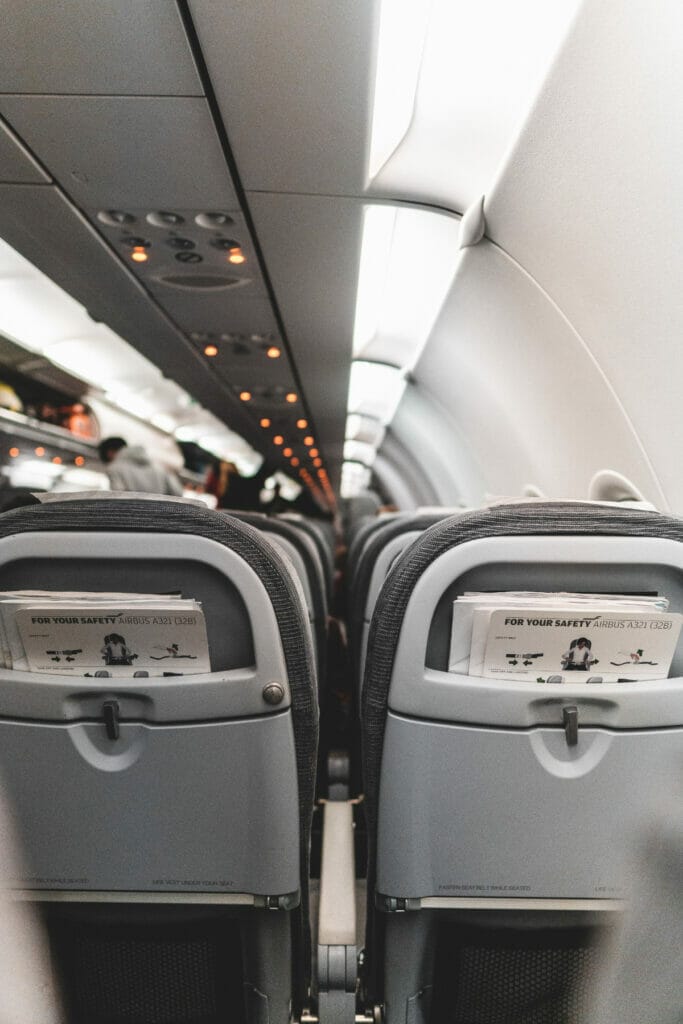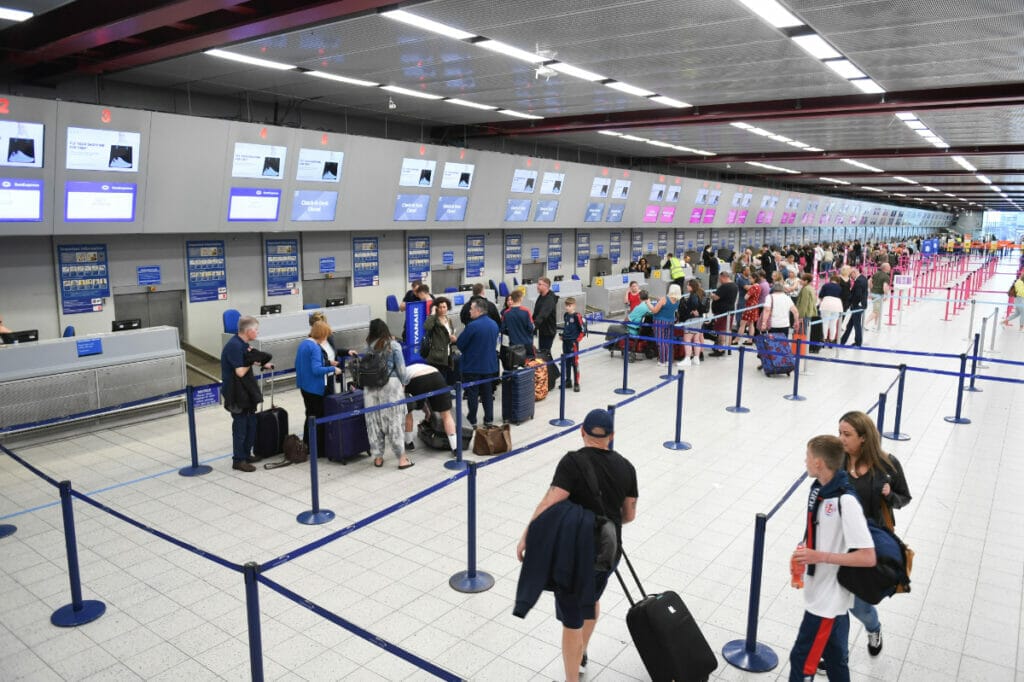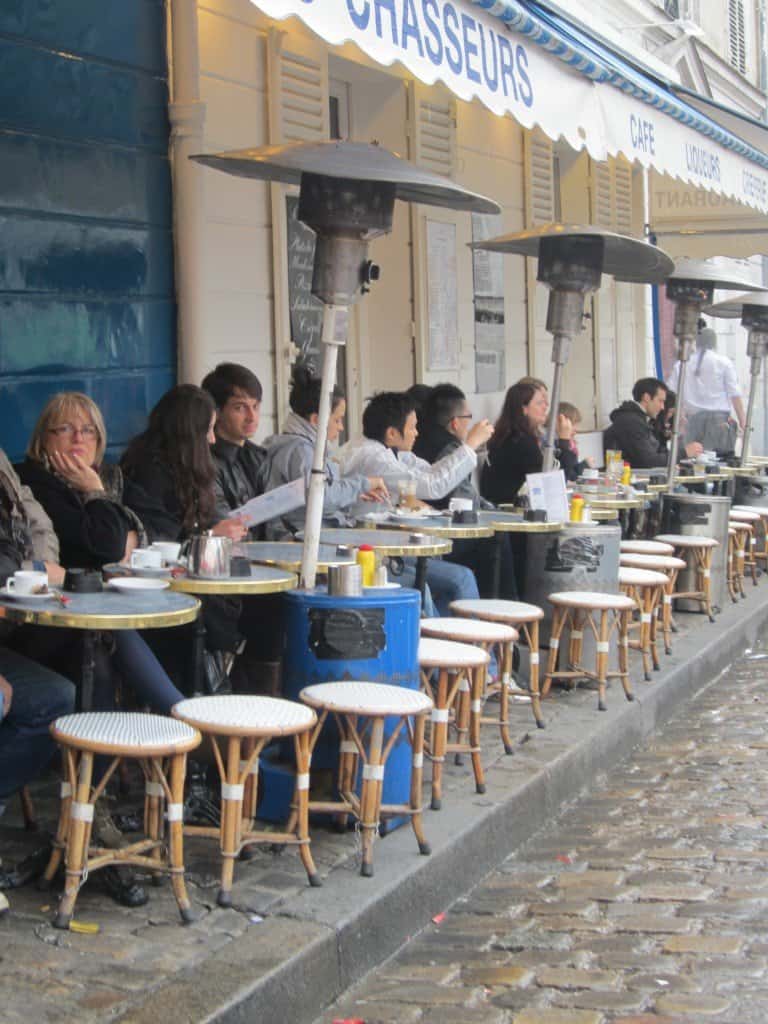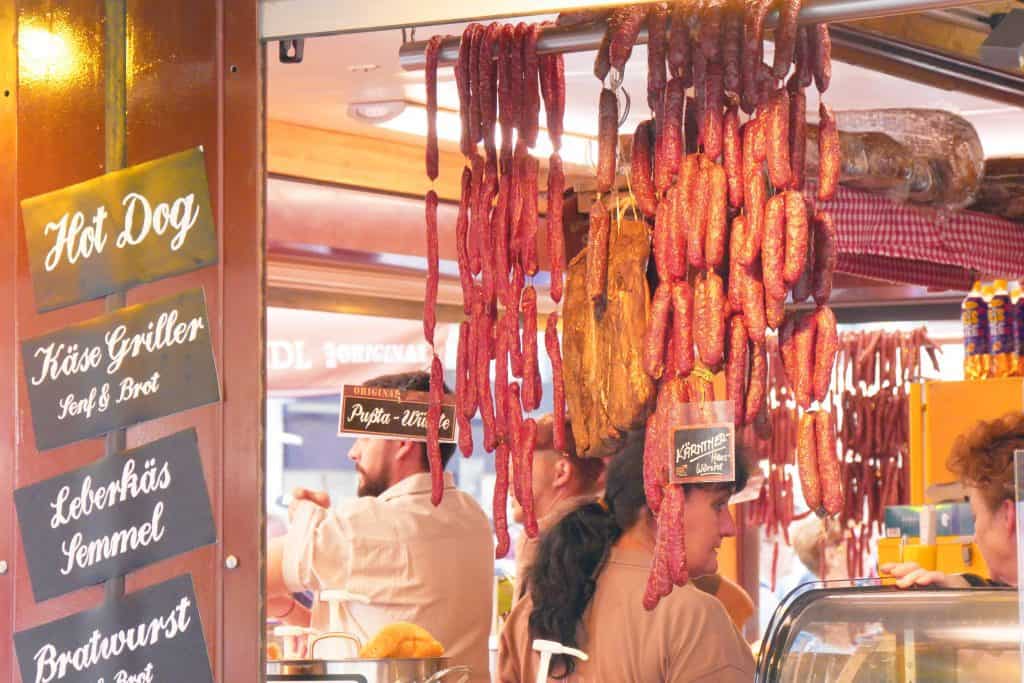The Top 10 Mistakes Students Make While Studying Abroad in Europe
The Top 10 Mistakes Students Make While Studying Abroad in Europe

Europe is an incredibly alluring backdrop for students studying abroad, with its dreamy architecture, rich heritage, and the opportunity to learn Romance languages from native speakers. And while cities in Europe have centuries of history to absorb, they are also evolving metropolitans with fresh outlooks on cuisine, art, and nightlife.
Going overseas as a student can be incredibly daunting and stressful because you’ll want to soak up as much as you can while adjusting to a new environment. When I first moved overseas to study in Paris as an undergraduate, I was so anxious and overwhelmed by the city I had held on a pedestal that I missed out on a lot of opportunities to really embrace Parisian and French culture.
By the time I returned for graduate school a few years later, I was better equipped to interact with the local culture and understand the nuances of the language and the people that surrounded me — something that is crucial to getting the most out of your overseas experience. The below list are mistakes I’ve made and witnessed others make, and by avoiding them you are sure to return home with a fresh outlook and stories to tell for years to come.
1. Not Learning the Local Language
Brushing up on useful phrases before you go gives you a great head start when moving overseas, but interacting with locals is the best way to truly master a language. Forcing yourself to speak the local language with everyone from your barista to the butcher will make you comfortable with the language intricacies, slang, and vernacular — all things that you can’t learn as easily in a classroom.
Though it may be tempting to let them practice their English with you, you will have a much more enriching experience and learn more from them in their native language. Remember: learning a language takes time and you may fumble from time to time, but locals definitely appreciate the effort.
2. Making Friends Only with Students from Your Home Country
Other Anglophone students can be comforting companions when living overseas, especially when it comes to struggling with the same cultural barriers and red-tape bureaucracy. But reaching out and trying to make friends with students from the country where you are studying is key to truly experiencing a new country. It also exposes you to interesting cultural traditions and trivia that only a native would know. (The same applies for dating!)
These friendships are also a low-stress way to practice the language with someone who can correct your mistakes and pronunciation over a few glasses of wine (which, come on, is way better than a classroom anyway).
3. Traveling Too Much
With many low-cost airlines and train routes available throughout Europe, it can be tempting to pack your bags and hop to another nearby city as soon as the weekend hits. But this constant traveling can mean that you lose out on experiencing what the city you’re living in offers in terms of entertainment, nightlife, and weekend activities.
Maybe there is a cute open-air market at the end of your block on Sunday mornings, or a club that transforms into a concert venue on weekends. Staying put more than traveling gives a much deeper experience of one culture and city, rather than many fleeting, short experiences. It also helps build deeper friendships with those you’ve met in town.
4. Not Traveling Enough

That said, it would be a shame to be an hour flight from Rome and miss the opportunity to take it. Prioritizing a few key trips you’d like to take while you are studying overseas is a great way to really narrow down the cities you want to see the most, and not get trapped seeing any city that offers a good flight deal.
Traveling less frequently also means your budget can stretch a little further, and you can eat the best cacio e pepe or hike along the coast of the Mediterranean in Cinque Terre (or, at the very least, you hopefully won’t be trapped in the sleaziest hostel in town).
5. Not Living with a Host Family
If your study abroad program offers this — and many do — don’t pass on the opportunity to live with a host family. Host families provide intense language immersion and can make living in a foreign country seem like home much more quickly than it may otherwise.
Host families are also seasoned at welcoming students into their homes, and know what struggles and triumphs you may face throughout the course of your program. Many host families also provide a certain number of meals per week, which means you are guaranteed to experience authentic home cooking regularly. All of this can provide you additional support during an extended period of living and studying abroad.
6. Buying Only Familiar Brands of Food When Shopping
Many brands and products you may love in your home country are probably available somewhere in the country you’re studying in, either at a specialty store or even in a regular grocery store.
The ease of familiarity is so tempting, but branching out and trying to shop like a local can create a lasting change in both the food you eat and the way you eat it. Many European shoppers prioritize smaller, more specialized stores, which means you can learn a lot about the food from the vendors you’re shopping from.
7. Frequenting Mega-Chains like Starbucks & McDonalds
Though a venti caramel macchiato may be the best cure for your homesickness, it can also prevent you from going places off the beaten path and discovering somewhere new.
European cities have a rich café culture that changes based on where you are and sticking with what you know could stop you from drinking an espresso quickly at a counter or dipping churros in melted chocolate. And while chains you know may be a great quick lunch or late-night snack, a baguette sandwich or a kebab is so much better.
8. Ignoring Local Manners & Customs

In many European countries, it is considered incredibly rude to begin speaking with someone before saying hello. Some citizens can become very uncomfortable if you hug them instead of handshaking or bising (kissing hello).
Learning these faux pas — and making sure to avoid them — can be critical when it comes to fitting in in a foreign country, and can put the locals around you more at ease. A lot of these relational manners and customs can be found for the country you will be living in through a simple search, or you can ask friends or professors for advice.
Most importantly, pay attention when interacting with locals to see how they respond, and always err on the side of caution to respect their customs.
9. Going Home for the Holidays
Maybe this is your first holiday season away from your family, meaning you’ve already thought about or booked your flights home and back. And while it may be tempting to make the trip home, going back to traditions you’re used to wastes an opportunity to learn how others celebrate and what traditions are customary of the city you’re living in.
It can be daunting to stay overseas on your own, but asking friends who live in town if they have an extra seat at the dinner table can be inspiring, and perhaps can introduce new traditions for the next holiday you spend at home. Many people are incredibly hospitable when it comes to welcoming a foreign student into their celebrations, and love being able to share their culture and cuisines to someone beyond their own family.
10. Failing to Balance Classroom Learning & Cultural Immersion
The best study abroad programs integrate classroom lessons with real-life applications for the city you’re in. This ranges from literature to theatre to film, and can help you soak up the city from a cultural and historical standpoint.
While you are studying abroad to learn, don’t let the homework overwhelm you to the point that you don’t actually get the chance to experience the city around you. Just walking the city and interacting with locals can sometimes be the best learning experience there is.
The most important thing to remember as you venture overseas to study abroad is to keep an open mind and stay flexible when things don’t go as planned — and very often, things won’t go as planned. Locals will appreciate your effort to adapt to their culture and are often willing to teach you things along the way (let them!). It can definitely be stressful moving to a foreign country by yourself, the experiences you’ll gain are well worth it!
This post was originally published in March 2014, and was updated in April 2019.
6 ways to travel Europe on a tight budget

Apply these tips for your next trip to Europe if you want to stretch your tight student budget. Source: Phill Magakoe/AFP
No money does not mean no travel. This applies even those studying in the UK and feeling their pounds getting fewer as the country’s inflation rate peaked at 11.1% according to the latest Consumer Price Index . You can even travel during Christmas too — if you know where to look.
The frugal traveller will still be able to explore the finest the UK and Europe have to offer, including its wintry wonderlands, famous Christmas markets and other glorious sights.
But there’s work to do first. To afford more expensive prices, you’ll need to spend more time planning and finding thrifty strategies. Here are the top tips you should know before you book your flights, tickets and accommodation:

Krakow is one of the cheapest cities in Europe to visit. Source: Ludovic Marin/AFP
6 ways to travel Europe without breaking the bank
1. Sign up for price alerts
Let’s get some myths out of the way: searching for flights incognito, clearing the cookies on your browser or booking your flights on a specific day will not help you to secure the cheapest flights.
Consider using the Skyscanner price alerts feature to track flight fares. Set the alerts for your preferred destinations and dates so you’ll receive an email or push notifications whenever prices go down or up — ensuring that you receive the best deals.
Make sure you check at least twice a day. Deals don’t last long so snap them as soon as they’re launched.
2. Take the bus or train
Instead of flying, the bus and train are cheaper modes of transportation that will allow you to stretch your tight student budget.
Companies like Flixbus have disrupted the industry, offering fares as low as five euros for a one-way trip. Most of these companies also operate on an app that will allow you easily track your bookings, the best deals and bus schedules. Ultimately, bus fares are easy to cancel, and there’s almost always a spot available.
While the train is slightly more expensive, it offers a more scenic ride. Book your tickets and look on the provider’s website for any promotions they run (especially when Christmas is right around the corner).
3. Search for budget accommodations
Did you know that Europe is packed with budget hostels catered to backpackers? They range from US$5 to US$30 a night. Hostels in Eastern Europe can go as low as US$10.
HostelWorld is a reliable site for you to source cheap accommodation options. Always read reviews for every hostel, view traveller pictures of the place and pick a spot near the city centre for safety and comfort.
If you are feeling adventurous, try Couchsurfing. This online platform allows locals to offer their couches and spare beds to travellers for free. Again, similar tips apply.

Walk as you travel to soak in the sights. Source: Rodrigo Buendia/AFP
4. Walk whenever possible
Consider walking if your destination is close enough. You’ll not only get to exercise but also have the chance to immerse yourself and be present in a new city. Walking lets you discover hidden parts of a place that a car, bus or train will miss. The best part? It’s free.
If walking is impossible, the local bus or tram is always cheaper than a taxi. You can still interact with the locals while you travel too.
5. Making the most out of free activities
Always Google for a list of free things to do in a specific country so you can know what to do for little money in a foreign country.
Many European cities offer free walking tours. Travellers like Curiously Erin break down the best free walking tours you can do in Europe. Your student ID card is also helpful in securing discounts and free visits. For example, students can visit the Musée du Louvre in France for free .
In Italy, you can visit the Colosseum and Roman Forum in Rome, as well as the Uffizi Gallery or Michaelangelo’s David in Florence for free on the first Sunday of every month.
6. Saving money on food and drinks
When in Europe, do as the locals do. Nothing beats a meal cooked from ingredients shopped at the local food market. They are more affordable than eating out in restaurants.
Picture enjoying a bowl of cheese as you picnic in front of the Eiffel Tower or any central park or monuments. Or seek out authentic local restaurants by asking the locals.
Not into picnicking? Eat at local sandwich shops, pizza parlours, Maoz, Wok to Walks, and outdoor street vendors.
11+ Honest Tips for Studying Abroad in Europe
This post contains affiliate links for which I may make a small commission to help keep the site running. You will not be charged extra for these items had you not clicked the links. Thank you for your help to keep the site running!
Studying abroad in Europe is a rite of passage for many American students, but I think it’s important to share these study abroad in Europe tips so that you can get a full picture of what you’re signing up for.
Whether you’ve chosen London because you’re in love with Mary Kate and Ashley’s Winning London or in Greece because you watched Alexis Bledel travel there in Sisterhood of the Traveling Pants (no judgement), studying abroad in Europe is a fantastic experience and one that you should embrace wholeheartedly.

In this study abroad in Europe travel guide, I want you to know, though, that it’s not all gelato and hot foreign men and women – sometimes it’s stressful and filled with homework you don’t want to do, excursions to places that weren’t actually all that cracked up to be, and culture shock.
So, without further adieu, here are…
Study Abroad in Europe Tips: Everything You Need to Know
1. Do: Make sure you’re compatible with your travel companions
There are two major kinds of European trips for a student studying abroad in Europe: the “everything is planned down to the number of croissants you will have in the morning and the 10 best cities in Europe you’ll hit during Fall Break” trip and the “we have no idea what we’re doing, but we’re in Europe so who cares” trip.
This sounds ridiculous, but plan with your friends what kind of trip you’ll have (and what they’re expecting).

If you’re all wanting a relaxing weekend in the Greek islands with nowhere to go and nothing to do but soak in the sun, be upfront about it.
On the other hand, if you’ve imagined your week in Barcelona as non-stop touring and you have a list of the 20 restaurants you must hit on Day 1 of your trip after your fourth walking tour, share that as well.
Especially in larger groups, it can be a recipe for disaster if you all have different expectations and everyone will leave feeling unsatisfied.
If you find that you’re not compatible with your group, know that you’ll either need to adjust your idea of ‘fun’ for this trip or bow out gracefully.
2. Don’t: Plan too far ahead
This is going to sound pessimistic, but I have seen it time and time again, discussed it with my study abroad friends multiple times, and feel like I have to mention it.

It’s one of the best tips for studying abroad in Europe I can possibly give first time study abroad students.
There is a 99% chance that you will not be friends with the people you meet online or on Facebook groups before you study abroad.
Being a study abroad student is like being a freshman all over again, and suddenly everyone is nervous to study abroad becomes over eager to “make friends” and, even worse, make travel plans over social media long before the semester even starts.
Study abroad Facebook groups are great for asking questions and sharing excitement.
But, honestly, unless it’s a trip organized by your program, wait until you move in to find your friend group and make travel plans.
There are too many cringe worthy stories I’ve heard over the years of people who find themselves on a trip in October that they planned online with a group of seemingly-nice faces back in the summer.
The majority of the feedback is “…well, that was awkward,” whether that’s because you never actually befriended them in person or because you grew to actively dislike each other two weeks in.
3. Do: Look for budget flights

If you’re seriously planning on traveling in Europe, you’ll be aware of budget airlines and may have heard of the major ones like EasyJet and RyanAir.
Don’t be afraid of these.
The prices are cheap, but the safety on budget airlines is regulated just like any other airline.
It’s really important that you book ahead in plenty of time, as prices on these flights will keep going up as more and more seats are filled.
4. Don’t: Take budget flights without researching

You can check out my guide to budget airlines for a (humorous) rundown of the downsides of budget airlines, but the most important consideration is where the flight lands and how easy it will be to get to where you’re staying.
Plenty of cities just have one airport so it won’t make a difference, but sometimes budget airlines will fly into airports far away from city centers or into different cities altogether.
This can add huge costs to your travel and also lots of time you might not want to lose if you’re only staying for a weekend.
5. Do: eat the local cuisine

Paris, France
“When in Rome…” do as the Romans do and eat the gelato and pizza!
Food is a huge part of many European cultures, and even the pickiest eaters should be able to find some things they enjoy.
From cheeses in France to waffles in Belgium to pasta in Italy, make sure you make time to eat like the locals.

When else are you going to be able to say that you strolled past the Colosseum while munching on a cannoli?
Yes, it sounds pretentious, but this is your chance to be pretentious and get away with it.
6. Don’t: eat out all the time
Considering you’ll be on a budget, remember that many cities have great food markets and stalls to choose from and accessible supermarkets.
“Sit-down” meals can get expensive quickly, so don’t be afraid to suggest stopping in to the grocery store for a lunch in the park or breakfast on the go.

It’s another way of seeing how the locals live and what treats and candies and food are popular.
If you came to London and never went into a supermarket, you’d miss out on Freddos, and that is basically a crime against the British empire.

Rome, Italy
7. Do: Look into the train system
In America, trains are like these mythical modes of transportation that we’re pretty sure only Hogwarts uses (and maybe a few cities in New England.)
Don’t take that misconception to Europe, because Europe is well connected by rail and it can sometimes be the best option.

For closer destinations like Paris and Belgium, check out the Eurostar.
Also look up trains within countries.
Once you fly to Italy, for instance, you can then travel around by train instead of continuing to deal with airports.
8. Don’t: be immediately drawn to hostels
When you think ‘budget travel’ in Europe, hostels immediately come to mind.
Hostels can be great for meeting new people and feeling like you’re having the “typical” travel experience, but if you have a larger group or are staying for more than a few days (or just don’t want to resort to living in a cramped room for the sake of adventure,) check out AirBnB.
Depending on the city, you can find apartments to rent that will be much more spacious at the same kinds of prices (once you split it among the group).

Paris, France
9. Do: experience your trip with your own eyes, rather than a lens

Copenhagen Open Air Museum, Denmark
I love travel photography.
I appreciate a good Instagram.
I once took 52 pictures of the same bird in Brighton because I couldn’t get the picture I wanted (spoiler alert: none of them worked).
But don’t be that person who has to relive their trip back in London while looking through their Facebook photo uploads.
I’ve done that and regretted it, because if I wanted to look at pictures of Europe online, I could have just wandered the streets on Google Street View and saved myself the money.
10. Don’t: Forget to Actually Study

Oh, you know that “study” part of study abroad?
Yeah, well, do it.
Those grades, for most people, are going to count when you get back to the US, so while study abroad is an amazing time to travel and get to see the world, you should also be seeing the inside of some books.
Don’t make the mistake of bombing out of all of your classes while abroad because it feels like a fantasy world, only to get home and realize you now have a graduate a semester late because this one hardly counted.
11. Do: Keep In Touch with Your Teachers
Not only do professors who teach on study abroad programs have a wealth of information about the local area and a passion for your chosen country, but they’re also great resources for the future.
Typically, study abroad classes are smaller than ones back on US campuses, which is a great opportunity to get to know your teachers on a more personal level.
Keep in touch with them, and you’ll be in a good spot when it comes to asking for recommendations in the future.
Have you studied abroad in Europe? What are your best tips on being a study abroad student in Europe? Comment below!
Source https://www.gooverseas.com/blog/10-study-abroad-mistakes-in-europe
Source https://www.studyinternational.com/news/travel-europe-cheap/
Source https://girlgonelondon.com/study-abroad-in-europe-tips/